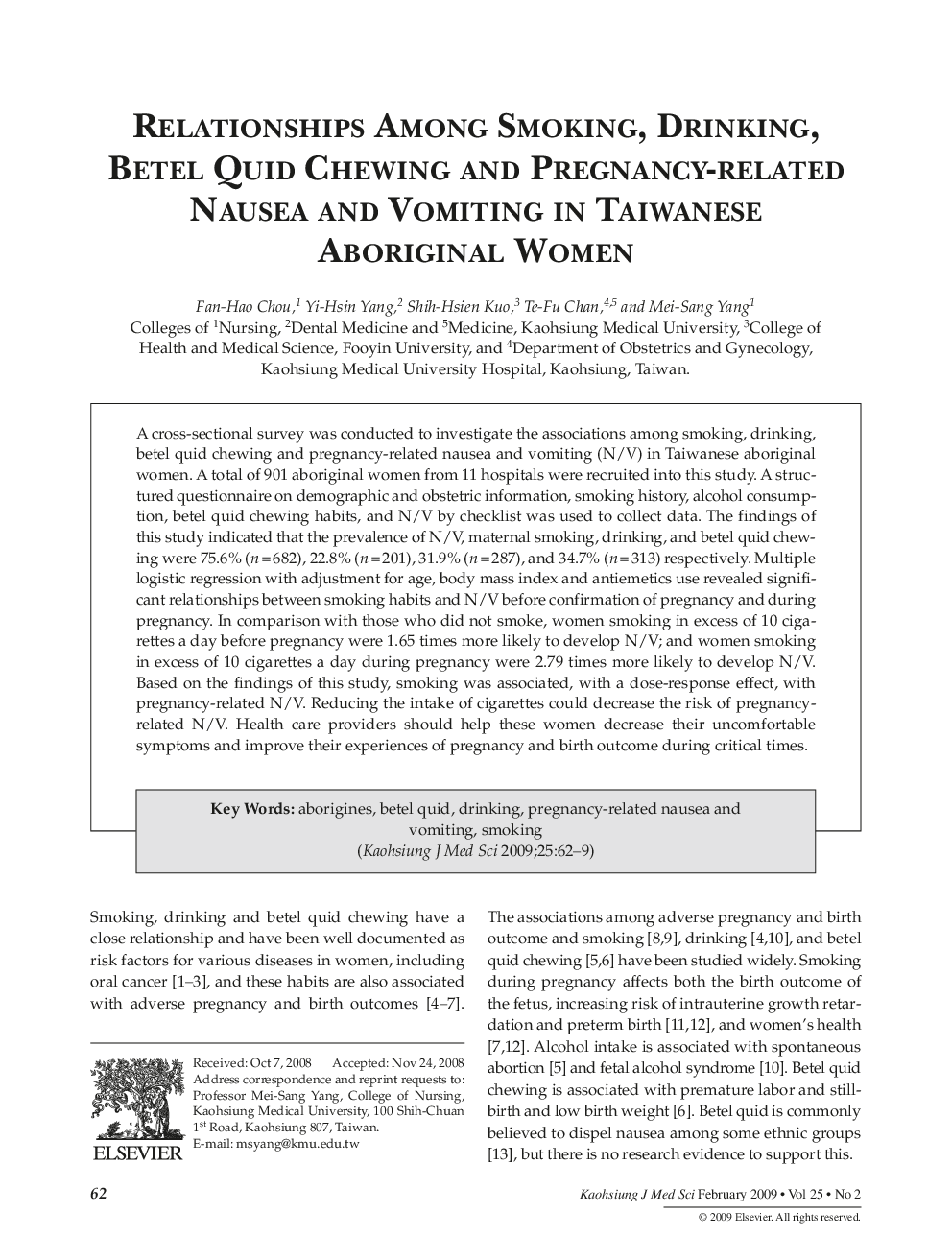| Article ID | Journal | Published Year | Pages | File Type |
|---|---|---|---|---|
| 3486143 | The Kaohsiung Journal of Medical Sciences | 2009 | 8 Pages |
A cross-sectional survey was conducted to investigate the associations among smoking, drinking, betel quid chewing and pregnancy-related nausea and vomiting (N/V) in Taiwanese aboriginal women. A total of 901 aboriginal women from 11 hospitals were recruited into this study. A structured questionnaire on demographic and obstetric information, smoking history, alcohol consumption, betel quid chewing habits, and N/V by checklist was used to collect data. The findings of this study indicated that the prevalence of N/V, maternal smoking, drinking, and betel quid chewing were 75.6% (n = 682), 22.8% (n = 201), 31.9% (n = 287), and 34.7% (n = 313) respectively. Multiple logistic regression with adjustment for age, body mass index and antiemetics use revealed significant relationships between smoking habits and N/V before confirmation of pregnancy and during pregnancy. In comparison with those who did not smoke, women smoking in excess of 10 cigarettes a day before pregnancy were 1.65 times more likely to develop N/V; and women smoking in excess of 10 cigarettes a day during pregnancy were 2.79 times more likely to develop N/V. Based on the findings of this study, smoking was associated, with a dose-response effect, with pregnancy-related N/V. Reducing the intake of cigarettes could decrease the risk of pregnancy-related N/V. Health care providers should help these women decrease their uncomfortable symptoms and improve their experiences of pregnancy and birth outcome during critical times.
